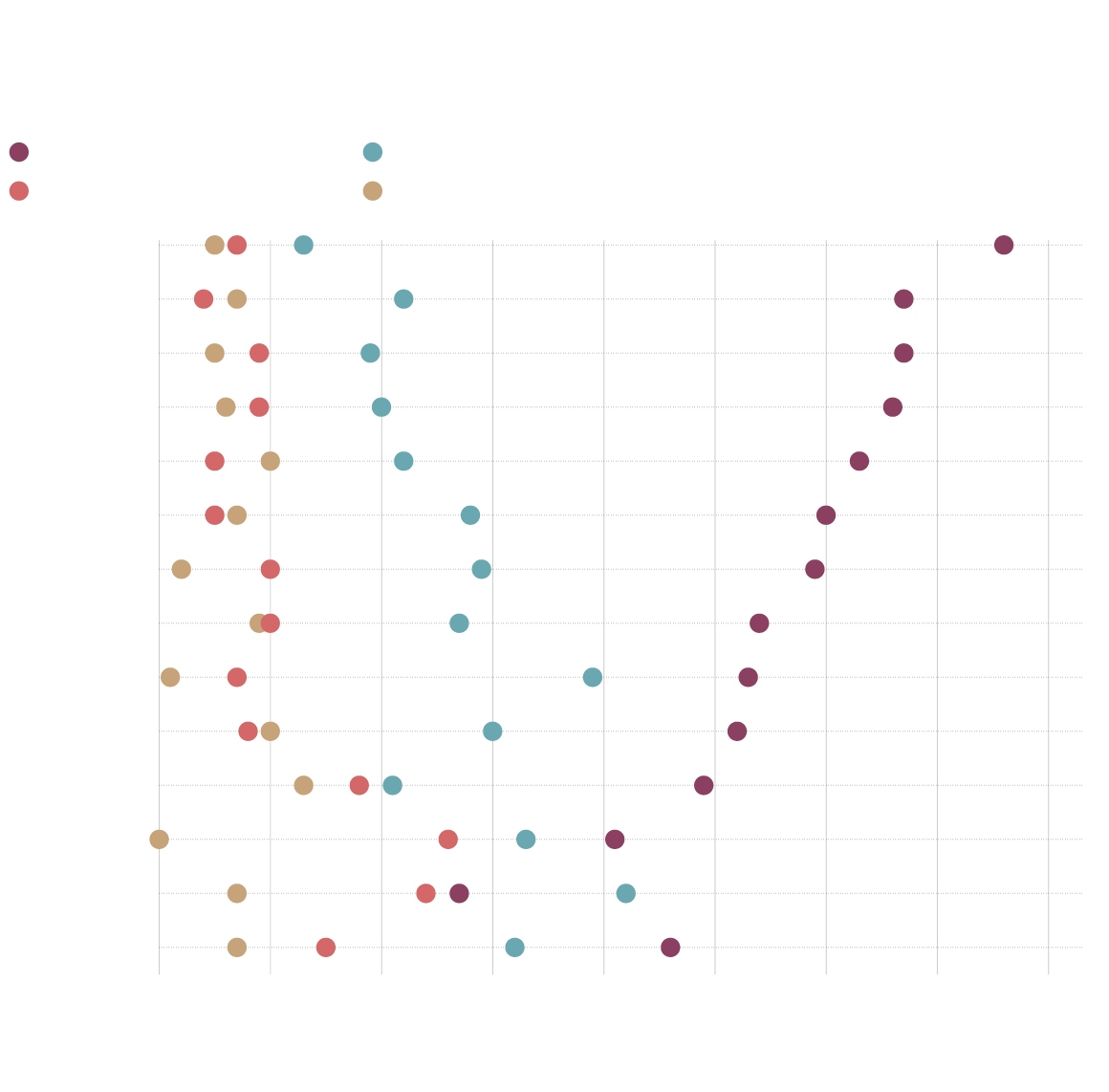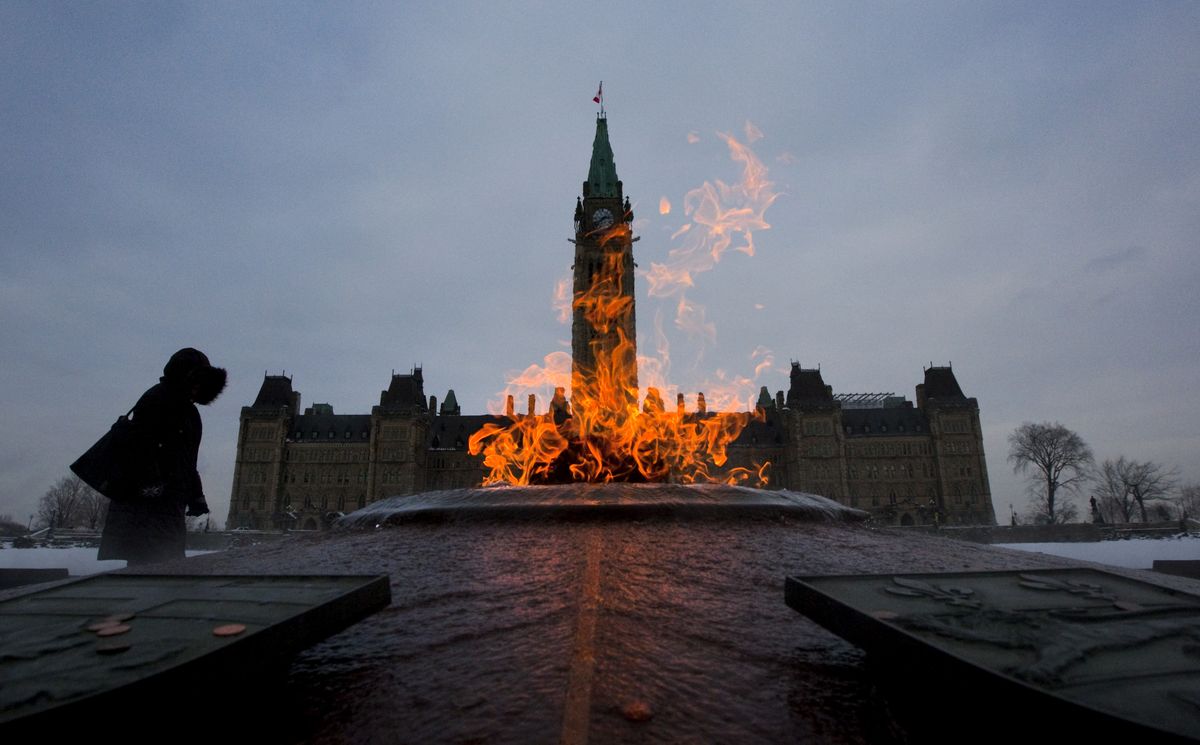Western rage at the “Laurentian elite” is hardly new, either. It flared up most famously as a result of Pierre Trudeau’s National Energy Program in the early 1980s.
But the stubbornness of provincial discontent shouldn’t take away from the serious escalation of ill feeling in Alberta and Saskatchewan that this polling reveals, said Andrew Parkin, director of the Mowat Centre, an Ontario think tank that helped produce the survey along with a handful of other research organizations. (The group used questions that have been asked in national surveys dating back to the 1980s to track opinion over time.)
“There’s a risk there of going, ‘The provinces always want more money, always want more power, and this is just complaining,’ ” he said. “Yes, but it is accentuated at certain places and certain times.”
Now is one of those times.
The federal government’s inability to win approval for major pipelines and its law taxing carbon emissions during a downturn in the domestic oil industry appear to have angered Saskatchewan and Alberta more than at any time in over a generation.
Fifty-seven per cent of residents in both provinces now say the federal government has become personally irrelevant to them. And for the first time since pollsters have been asking the question – as far back as 1987 – majorities in Alberta and Saskatchewan now agree with the statement, “Western Canada gets so few benefits from being part of Canada that they might as well go it on their own.”
Percentage who strongly or somewhat agree with "Western Canada gets so few benefits that it may as well go it on its own"
By province, 1987–2019
B.C.
Alta.
Sask.
Man.
102030405060%1987198919901992199419972000201020194736__undefined____undefined__
THE GLOBE AND MAIL, SOURCE: ENVIRONICS INSTITUTE
DATA
SHARE
×
| Region | B.C. | Alta. | Sask. | Man. |
| 1987-01-01 | 47 | 36 | ||
| 1989-01-01 | 39 | 32 | 30 | 30 |
| 1990-01-01 | 35 | 49 | 37 | 32 |
| 1992-01-01 | 45 | 42 | 26 | 47 |
| 1994-01-01 | 32 | 35 | 31 | 30 |
| 1997-01-01 | 36 | 36 | 26 | 26 |
| 2000-01-01 | 35 | 37 | 41 | 31 |
| 2010-01-01 | 36 | 28 | 28 | 19 |
| 2019-01-01 | 44 | 56 | 53 | 35 |
PERCENTAGE WHO STRONGLY OR SOMEWHAT AGREE WITH "WESTERN CANADA GETS SO FEW BENEFITS THAT IT MAY AS WELL GO IT ON ITS OWN"
Percentage who say "the federal government has become virtually irrelevant to me"
By region, 1998–2019
1998
1999
2000
2003
2019
0510152025303540455055CanadaAtlanticQuebecOntarioWestNorth3635293442
THE GLOBE AND MAIL, SOURCE: ENVIRONICS INSTITUTE
DATA
SHARE
×
| Region | 1998 | 1999 | 2000 | 2003 | 2019 |
| Canada | 36 | 35 | 29 | 34 | 42 |
| Atlantic | 40 | 34 | 32 | 33 | 43 |
| Quebec | 35 | 34 | 28 | 32 | 35 |
| Ontario | 38 | 34 | 31 | 31 | 38 |
| West | 32 | 34 | 28 | 38 | 49 |
| North | 40 | 53 |
PERCENTAGE WHO SAY "THE FEDERAL GOVERNMENT HAS BECOME VIRTUALLY IRRELEVANT TO ME"
“Every survey that’s ever been done about federalism has had most of the provinces outside of Ontario express some measure of discontent,” Mr. Parkin said. Still, “to not notice that alienation is higher than when Preston Manning first came on the scene, and to miss that concern about the future of the French language is stronger in Quebec than when Lucien Bouchard was premier, is to risk missing something fundamental about how the country is working.”
Nowhere is the national angst about Confederation more acute than in Alberta, where fully 71 per cent of residents feel their province doesn’t get the respect it deserves. That is partly due to a sputtering oil sector and anemic economy that have produced high unemployment and swelling public debt, said Colleen Collins, vice-president of the Canada West Foundation, which collaborated on the study.
But the anger also draws on more emotional, symbolic sources. Ms. Collins pointed to remarks by Quebec Premier François Legault dismissing the prospect of a pipeline carrying Alberta’s “dirty energy” through his province, which riled many in the oil patch.
“For one of our own to say, ‘We don’t want your dirty oil’ – that really hurts,” she said. “That felt like a kick in the gut.
“We know we’re blessed and we’re more than happy to share, but it comes down to that question of respect.”
Laurentian Consensus at the centre of Trudeau’s missteps in the SNC-Lavalin affair
Alberta’s oil woes have fuelled lamentable rhetoric across Canada and within the province
Opinion: As Trudeau courts Quebec, the alienation of the West only deepens
State of the federation: Key takeaways from the survey

Is your province/territory treated with the respect it deserves?
2019
No
Yes
Cannot say
Alta.
N.L.
NWT
Sask.
N.S.
Que.
N.B.
Man.
Nunavut
B.C.
PEI
Ont.
Yukon
Canada
0
10
20
30
40
50
60
70
80%
THE GLOBE AND MAIL, SOURCE: ENVIRONICS INSTITUTE

How much influence does your province/territory have on
important national decisions?
2019
Less than its fair share
About its fair share
More than its fair share
Cannot say
N.L.
N.S.
Alta.
Sask.
N.B.
Man.
NWT
Que.
Yukon
B.C.
PEI
Nunavut
Ont.
Canada
0
10
20
30
40
50
60
70
80%
THE GLOBE AND MAIL, SOURCE: ENVIRONICS INSTITUTE




























